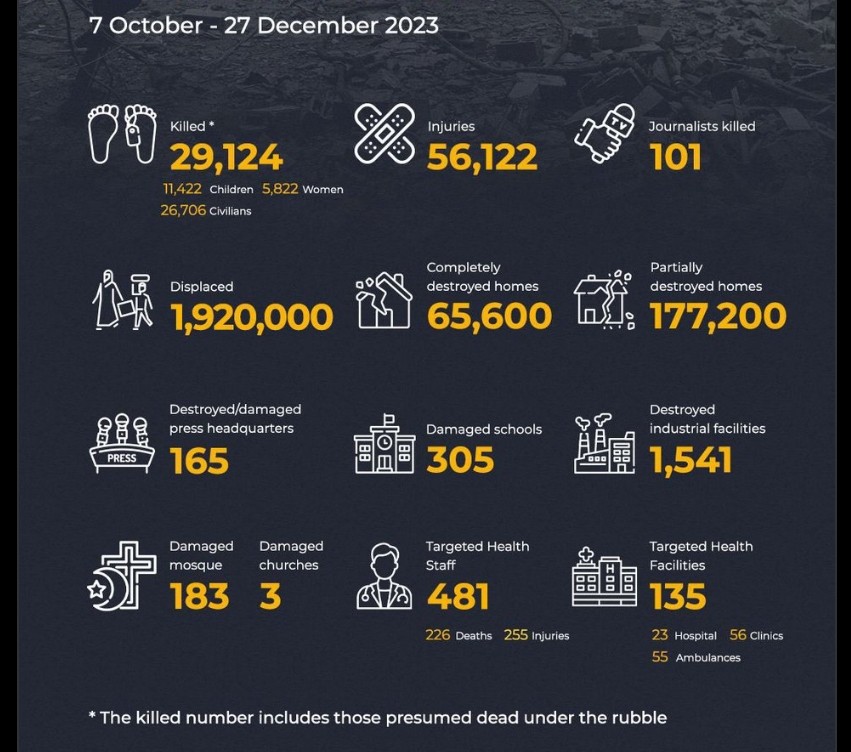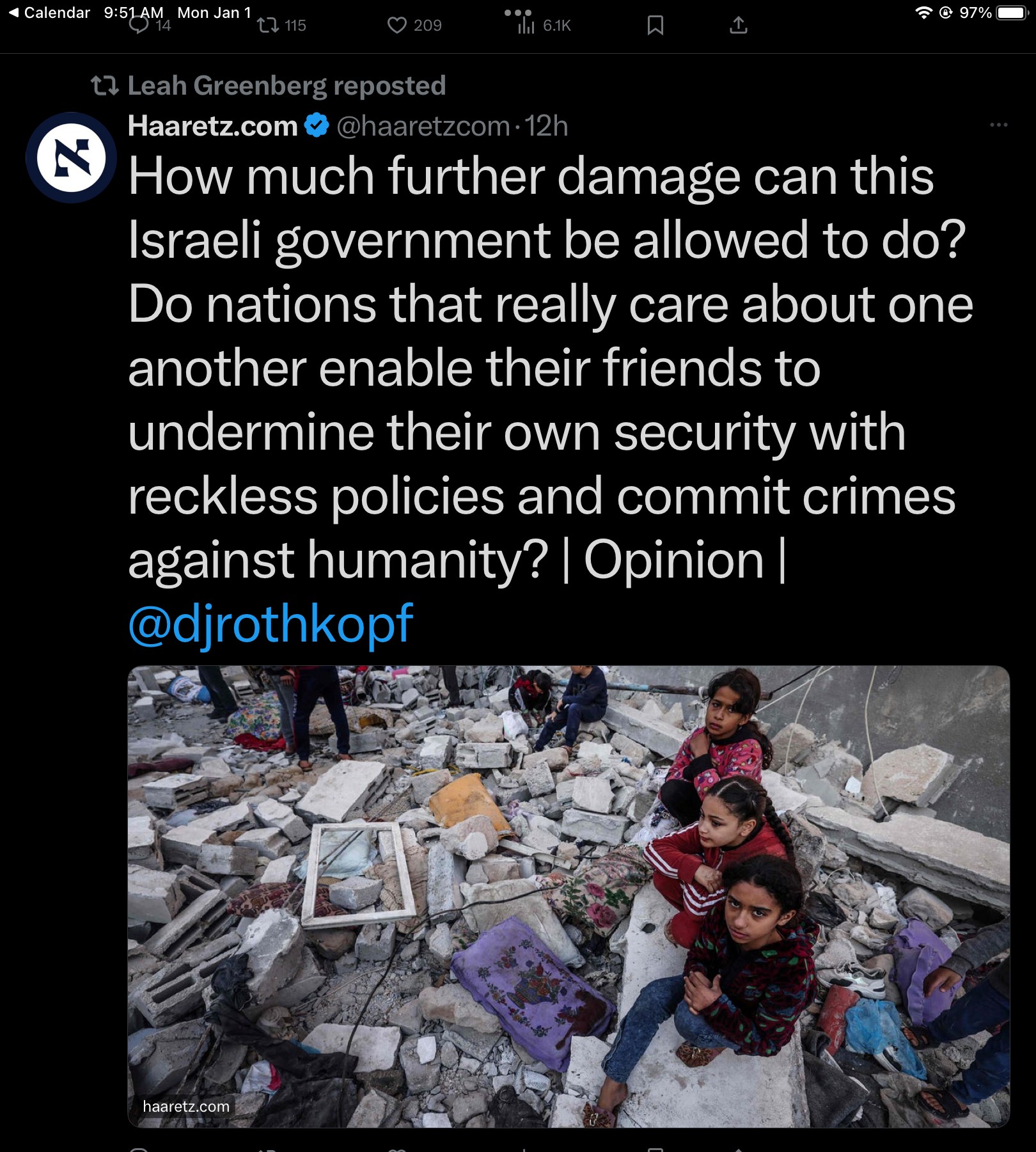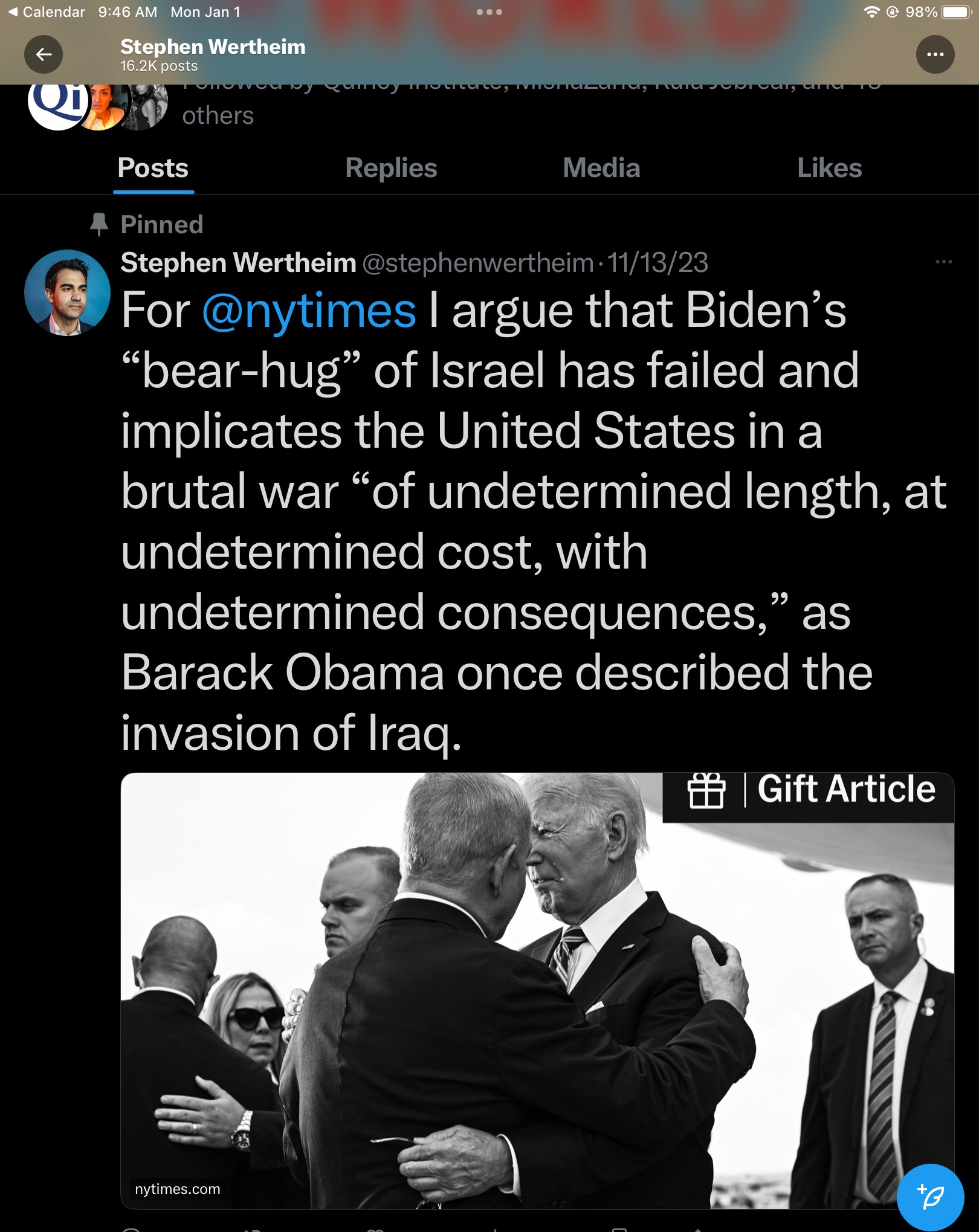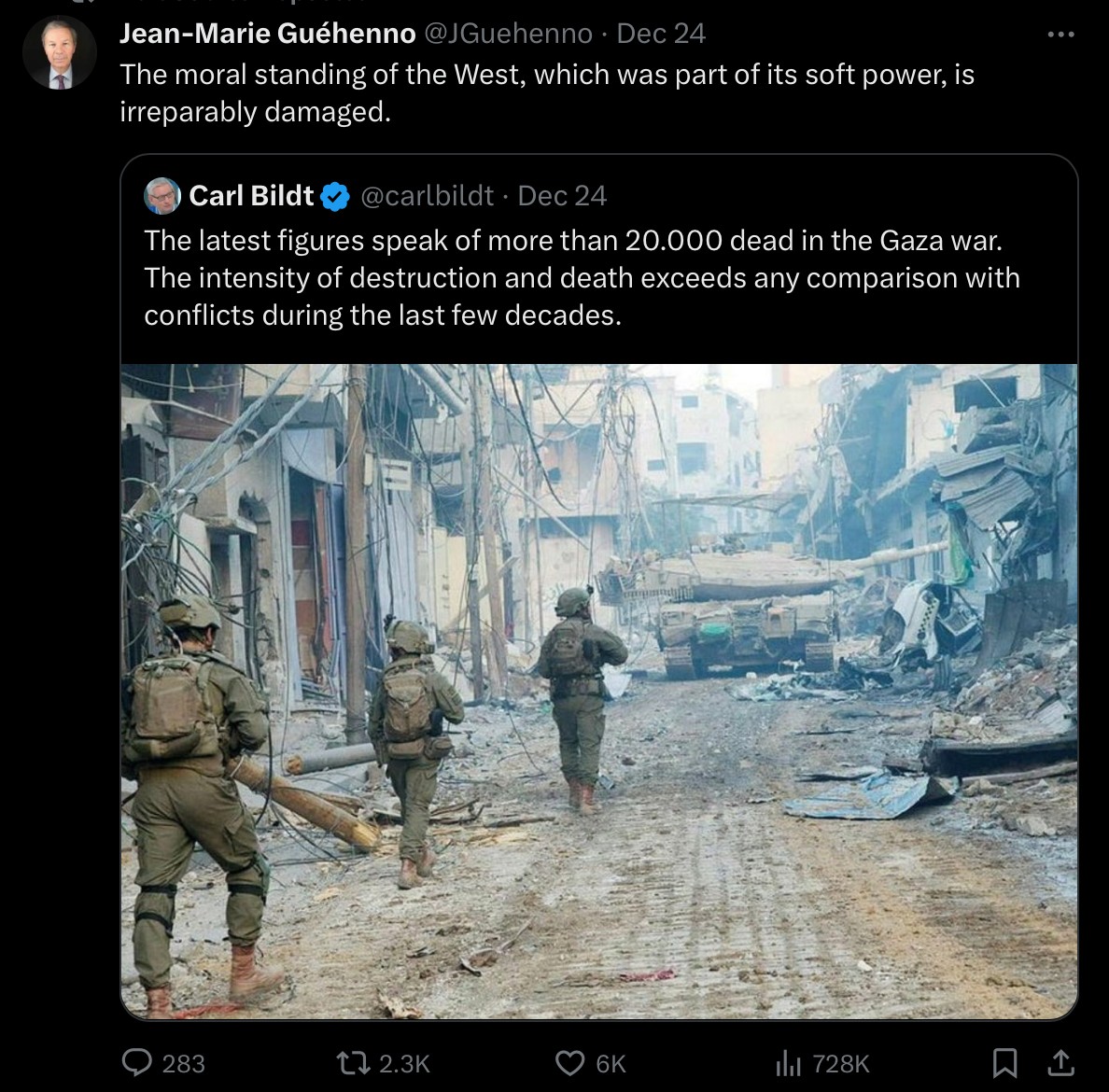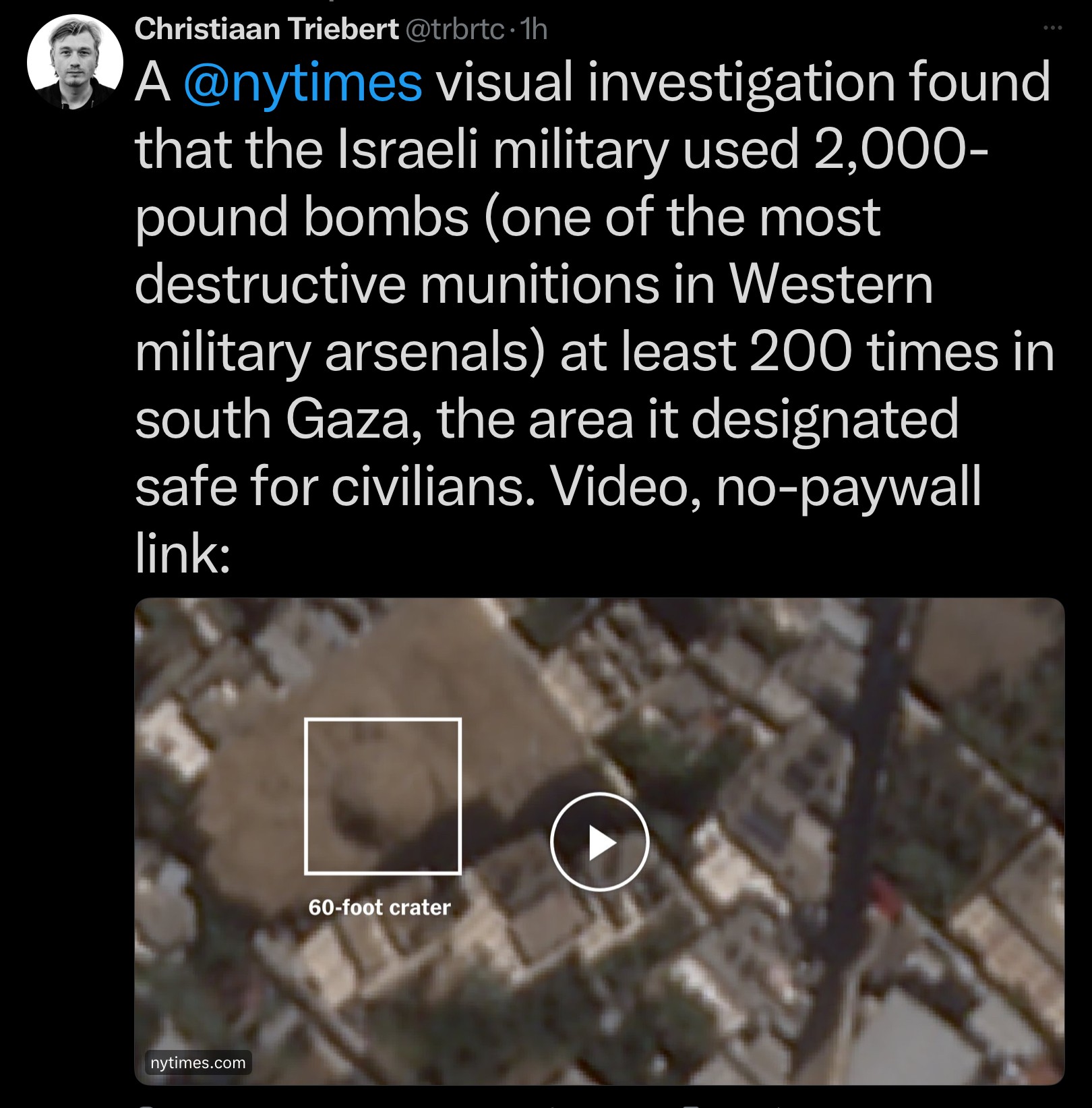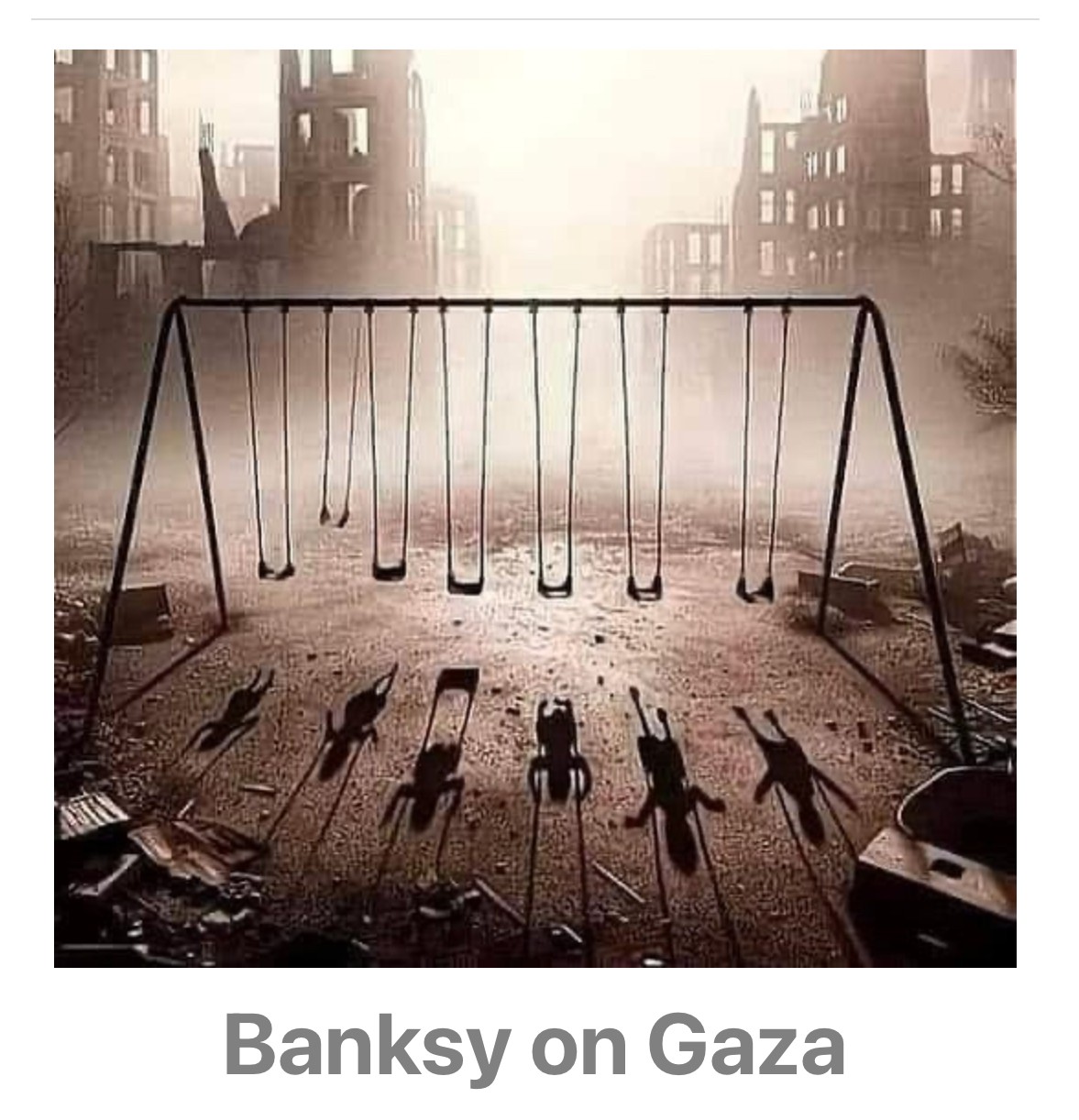Some, a few, are looking toward solutions to decades of hatred, extremism, and ongoing wars in the Middle East. Today, as 2024 arrives amid bombs, bombardments, and globally reverberating blasts, let’s look at words, pics, on-the-ground realities, and ‘off-ramps’
First, two excerpts from Letters from an American, January 2, 2024
by Heather Cox Richardson
On December 22, in the Christian Science Monitor, Arab political journalist Taylor Luck and correspondent Fatima AbdulKarim reported that Arab Gulf states, Egypt, Jordan, the U.S., and the European Union have created “[a] massive postwar reconstruction plan…for the besieged Gaza Strip.” The plan is to “rebuild the coastal strip, unite and overhaul Palestinian governance, and create a Palestinian security force in Gaza to ensure Palestinian and Israeli security.”
Arab diplomats insist the reconstruction of southern Gaza, including alleviating suffering, rebuilding housing and infrastructure, and restoring jobs, must be “rapid”; Gulf states have set $3 billion a year for ten years as the first budget. The plan calls for a “revamped and revitalized” Palestinian Authority to govern Gaza and the West Bank with current president Mahmoud Abbas as a figurehead and an apolitical unity government running affairs.
The plan is still developing, but already the main obstacles are Israel’s governing coalition, led by Netanyahu, who refuses the ideas of a two-state solution and of a Palestinian Authority in charge of Gaza, and Hamas, which Gulf states as well as the U.S. reject as a participant in the future governance of Gaza. Other Iran-backed militias also oppose such a solution.
From the beginning of the Hamas-Israel war, the Biden administration has been very clear that its first goal was to make sure the conflict didn’t spread, with Lebanon’s Iran-allied Hezbollah and other proxy militias joining in fully. Biden immediately sent two carrier groups to the region and promised “to move in additional assets as needed.” On October 10 he warned: “Let me say again—to any country, any organization, anyone thinking of taking advantage of this situation, I have one word: Don’t. Don’t.”
The New York Times piece by Baker, Wong, Barnes, and Kershner revealed that Biden and his national security team, including Secretary of State Antony Blinken and national security advisor Jake Sullivan, also warned Netanyahu against launching a preemptive strike on Hezbollah.
….
Also today (Jan. 2), in response to calls from Israeli cabinet members for the resettlement of Palestinians outside Gaza, the U.S. State Department issued a “rejection” of both the language and the idea. “We have been clear, consistent, and unequivocal that Gaza is Palestinian land and will remain Palestinian land, with Hamas no longer in control of its future and with no terror groups able to threaten Israel. That is the future we seek, in the interests of Israelis and Palestinians, the surrounding region, and the world.”
And in today’s Washington Post, Lebanon’s former prime minister Fouad Siniora and former Lebanese lawmaker Basem Shabb noted that “[d]espite the ferocity of the bombing and the great loss of innocent civilian lives in Gaza, the conflict remains largely contained to an Israeli-Palestinian confrontation—and more specifically, is broadly understood in the Arab world to be a conflict with Hamas, a non-state actor,” but warned the conflict must not spread. They noted that in November, “[i]n a first, 57 Arab and Islamic countries…called for a peaceful resolution to the Palestinian-Israeli conflict based on a two-state solution,” the same concept embraced by the Biden administration.
“In response to Israel’s atrocities in Gaza, the Arab world responded with denunciation—but, more importantly, with diplomacy. No military threats were issued by any of the Arab states toward Israel,” the Lebanese lawmakers pointed out. They urged Israel to embrace the two-state solution “and, in doing so, usher in a new era in the Middle East.”
~
Second, from an Anonymous source, an interfaith ethic:
Three religions/cultures look at ‘the Golden Ethic; Often referred to at the Golden Rule…
“In everything do to others as you would have them do to you, for this is the Law and the Prophets.” (Matthew 7:12)
Jesus’ well-known commandment for Christianity recalls and restates Rabbi Hillel’s iconic saying: “That which is hateful to you, do not do to your fellow man. That is the entire Law. The rest is commentary. Go learn.” (Talmud: Shabbat 31a)
The same idea is in the following Islamic hadith: The Prophet (PBUH) said, “No one is a believer until they desire for their brother what they desire for themself.” (Al-Bukhari and Muslim)
The interfaith power of the Golden Ethic, the Golden Rule speaks to values of equal treatment, fairness, human rights, and justice. This commonality should be applied consistently to one and all. This ethic/rule stands in opposition to vengeful Biblical injunctions such as ‘an eye for an eye, a tooth for a tooth’, retribution and revenge.
The Golden Ethic, a Golden Rule, is an interfaith belief in care, empathy, and kindness, especially for children and mothers, the poor, those in adversity. The Golden Ethic, Golden Rule talks of social justice, quality of life, and a community’s well being.
The Golden Ethic, Golden Rule
(December 2023)
~
How is the world seeing what is going on in Gaza and Israel?



